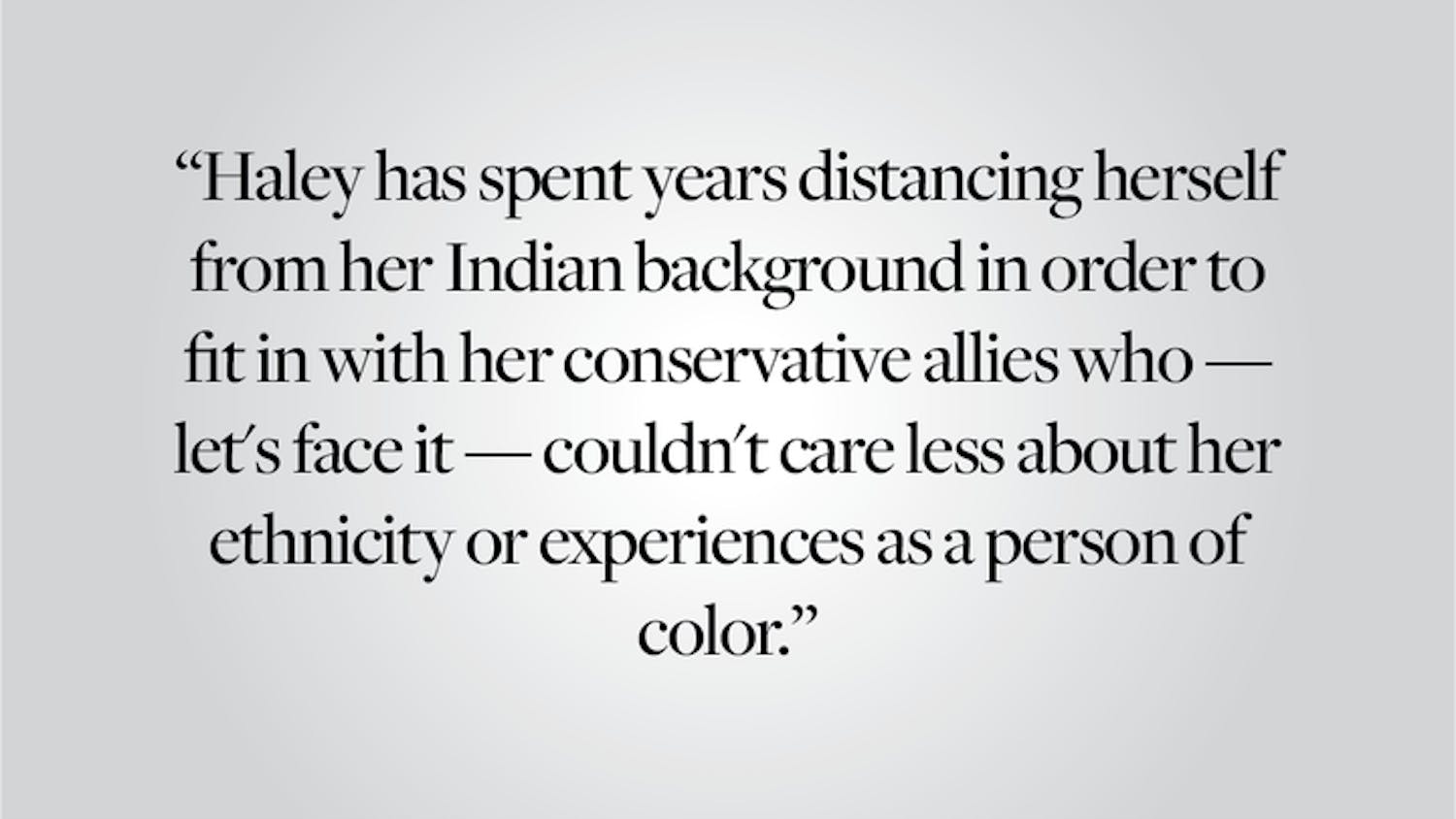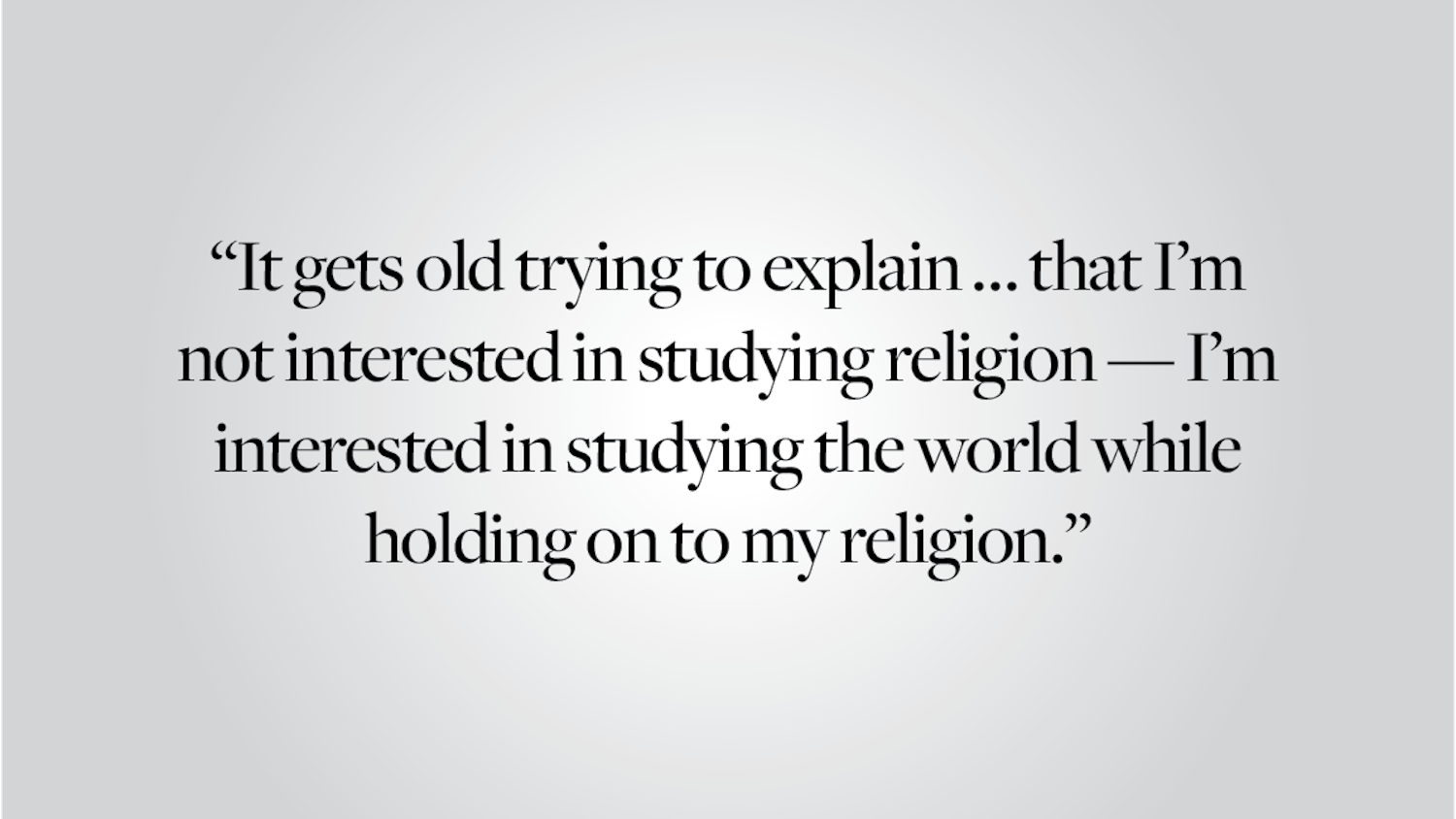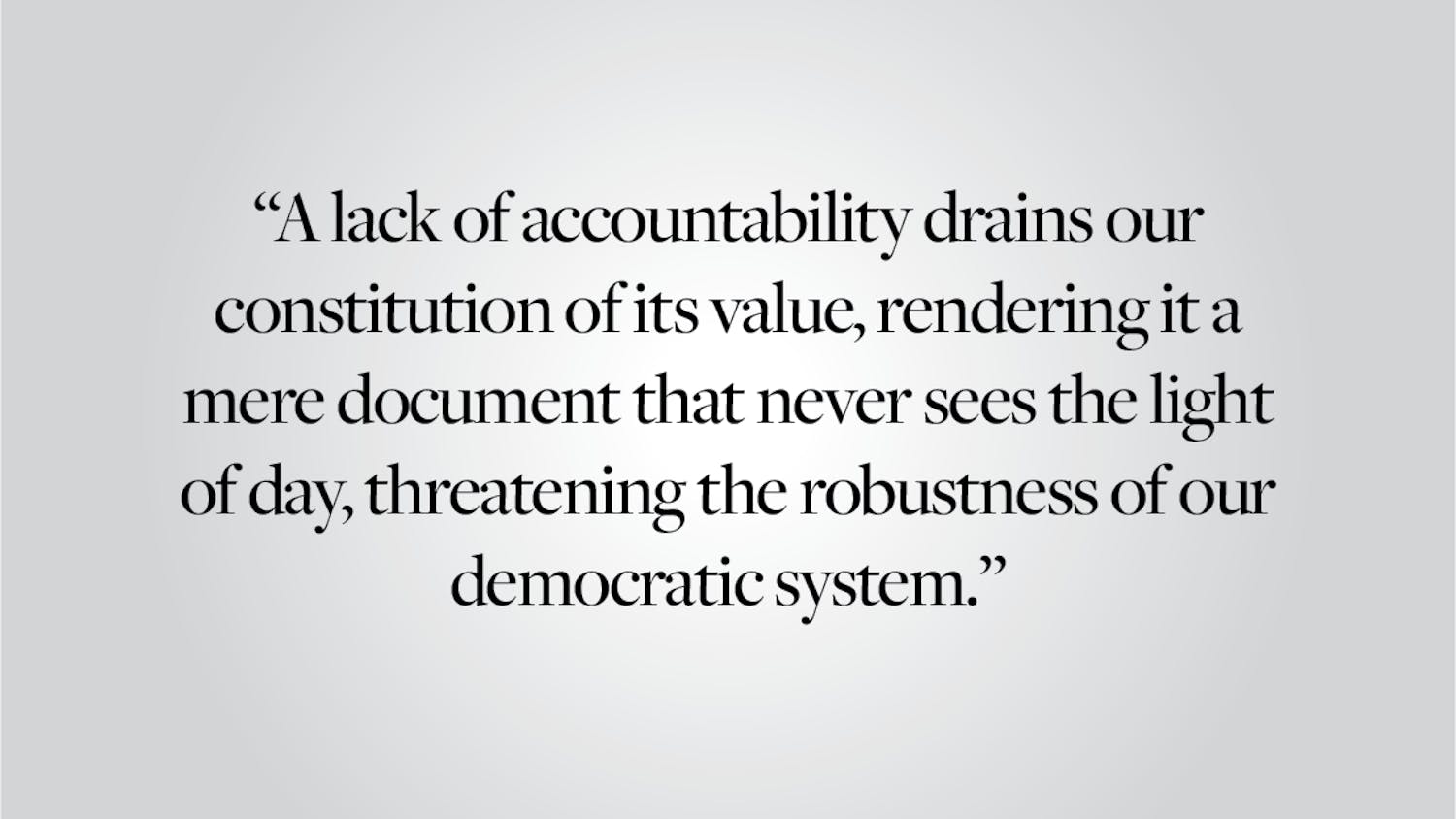We urge you to read the statements published by Native Americans at Brown and other student of color groups on campus prior to reading this.
For all its talk of freedom of speech, Brown has a problem talking about race. In the storm of blame and accusation that has swept campus in the past two weeks, no one has blamed us — white students. Whether or not we agree with the content of the articles, every white person on this campus fosters the environment that allowed M. Dzhali Maier’s ’17 pieces to be published. We are all complicit.
We address this to other white people on campus and to anyone who has found the arguments for free speech compelling. The five of us have been complicit through our silence. We are writing this in response to calls from students of color for a public statement from white people. It is unacceptable that we did not act until prompted. We should not need reminding to show up for our friends and fellow community members.
In their Oct. 9 open letter, President Christina Paxson P’19, Provost Richard Locke P’17 and Executive Vice President for Planning and Policy Russell Carey ’91 MA’06 deemed the pain inflicted by the Herald columns valuable: an uncomfortable, yet overall productive learning experience. They are wrong. There is a difference between promoting productive discomfort and inflicting pain and harm on members of our community. Productive discomfort involves questioning systems of power and recognizing our privileges and assumptions; it does not involve questioning the humanity of others. This is not a teachable moment. Using people of color as teaching tools is a profound failure of empathy and respect.
What’s more, this supposed “learning” is not taking place. In spite of administrators’ claims that we are learning from the discussions the articles have prompted, we are having the same misguided debate about free speech that followed the Ray Kelly protest. After the publication of Maier’s columns, our silence allowed the conversation to shift from the rights of Indigenous peoples and scientific racism to an all too familiar pseudo-intellectual defense of free speech. These freedom of speech arguments actively prevent much-needed conversations about race on this campus. We are no longer talking about Native genocide and Indigenous Peoples’ Day.
We are taught to extol the virtues of free speech. White people in particular are taught that our voices are always worth being heard. When we believe in free speech, we do so because it works in our favor. The problem is that freedom of speech is not a universal reality. Free speech assumes a level playing field among speakers that does not exist. Power always affects interactions and what people can and do say in the context of a given relationship, institution or society. In this case, at an elite, predominantly white university, race and class are inseparable from any social interaction, let alone the curation of content in an established campus publication.
These arguments for free speech are often deployed to silence voices of color. Colonial histories of civility aside, calling for “civil discourse” implies that expressions of pain and anger by people of color are not civil and have no place in the conversation. In the past two weeks, students of color have not only protested against the intentional circulation of words that deny their humanity. They have also pushed the campus to grapple seriously with how legacies of racism and colonialism endure at Brown, and we have failed to rise to the occasion. The right to free speech is a protection against the abuse of power, not a guarantee of a platform for all ideas. The Herald has both institutional power and a public platform. It can and continues to publish offensive material in spite of student complaints. Neither Maier nor the op-ed writers are being denied the freedom of speech.
The academy, and Brown in particular, is not a vacuum in which we can expect to discuss ideas in isolation from social systems. What we say here, and what we validate with publication, has real and significant consequences on the daily lives of our peers and communities beyond this institution. The protection of free speech is not a valid excuse for avoiding serious engagement with racism on this campus and in society at large. Free speech arguments are deceptively compelling because they invoke values we have been taught to accept without question. As such, they are dangerously effective rhetorical tools, and people in power will continue to use them — as demonstrated by Professors Ross Cheit, David Josephson, Glenn Loury, Kenneth Miller ’70 P’02 and Luther Spoehr.
Censorship has a particular meaning that has been lost in these debates. Censorship is the exercise of power to suppress challenges to the status quo. People of color calling attention to racism does not constitute an overbearing power structure that will limit free speech. The oppressed by definition cannot censor their oppressor.
Furthermore, it is blatant misrepresentation to say that students of color have been calling for censorship. It is clear that the writers of recent opinion pieces have not read the statements published last week by Native Americans at Brown or other student of color groups. Their calls are for accountability.
Upholding publication standards is not censorship. Responsible journalism means being accountable for the content accepted and rejected for publication. Why is it so crucial that already pervasive and harmful opinions receive further legitimacy through the implicit endorsement of an editorial staff?
Pain is not useful. Trauma is not a teaching tool. Our complacency has unfairly forced students of color to be our educators as well as our classmates. We demand answers from them at the same time that we shout them down. Instead of doing our own research, attending Minority Peer Counselor workshops and Center for the Study of Race and Ethnicity in America events and reflecting on how race operates in our groups and communities, we are writing op-eds in defense of free speech. Why are we refusing to care for, listen to and stand with people of color in our community?
Liam Dean-Johnson ’16, Aidan Dunbar ’16, Anastasiya Gorodilova ’16, Nico Sedivy ’17 and Madison Shiver ’17 can be reached at liam_dean-johnson@brown.edu, aidan_dunbar@brown.edu, anastasiya_gorodilova@brown.edu, nico_sedivy@brown.edu and madison_shiver@brown.edu.




